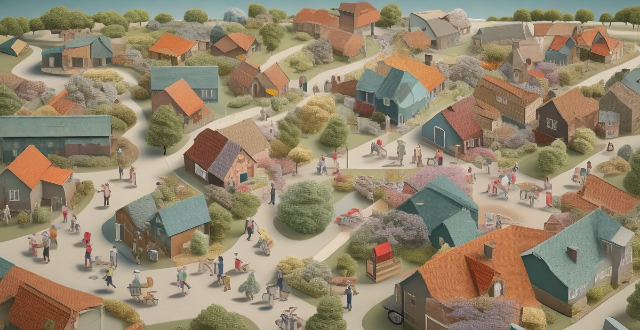Immigrants face numerous challenges in cultural integration, including language barriers, employment difficulties, sociocultural differences, legal and policy issues, educational hurdles, housing and settlement problems, and healthcare access concerns. Addressing these challenges is crucial for building inclusive communities where immigrants can successfully integrate and thrive.

Challenges Faced by Immigrants in Cultural Integration
Immigration is a complex process that involves not only physical relocation but also cultural integration. Immigrants often face numerous challenges as they try to adapt to a new culture, language, and way of life. These challenges can be broadly categorized into the following areas:
Language Barriers
- Communication Difficulties: Limited proficiency in the host country's language can lead to misunderstandings and miscommunications.
- Access to Services: Language barriers may hinder access to essential services such as healthcare and education.
- Social Isolation: Difficulty in speaking the local language can result in social isolation and feelings of exclusion.
Employment Challenges
- Skill Recognition: Immigrants may struggle with having their professional qualifications and skills recognized in the new country.
- Job Competition: High competition for jobs, especially for those without local work experience or connections.
- Underemployment: The phenomenon where immigrants are overqualified for the jobs they secure, leading to underemployment.
Sociocultural Differences
- Cultural Identity: Maintaining one's cultural identity while adapting to a new culture can be challenging.
- Discrimination and Stereotyping: Immigrants may face prejudice and discrimination based on their ethnicity or national origin.
- Acculturation Stress: The stress associated with adopting the norms and values of a new culture while dealing with potential conflicts with one's original culture.
Legal and Policy Issues
- Navigating Legal Systems: Understanding and complying with a new legal system, including immigration laws and regulations.
- Citizenship Pathways: Different countries have varying pathways to citizenship, which can be complex and lengthy.
- Documentation and Paperwork: The process of obtaining necessary documents and paperwork can be confusing and time-consuming.
Educational Challenges
- School Transition: Children may face difficulties adjusting to new educational systems and curriculums.
- Second Language Learning: Learning a second language at school can be a daunting task for immigrant children.
- Parental Involvement: Language barriers and cultural differences can make it difficult for parents to be involved in their children's education.
Housing and Settlement
- Affordable Housing: Finding affordable housing in desirable neighborhoods can be a significant challenge.
- Housing Discrimination: Immigrants may face discrimination when seeking housing due to their ethnicity or immigration status.
- Settlement Services: Access to settlement services that help immigrants navigate their new environment is crucial but often limited.
Healthcare Access
- Health Insurance: Understanding and acquiring health insurance can be complicated for newly arrived immigrants.
- Cultural Competency: Ensuring that healthcare providers are culturally competent and sensitive to the needs of diverse patient populations.
- Language Access: Limited English proficiency can create barriers to understanding medical information and advocating for oneself within the healthcare system.
In conclusion, cultural integration is a multifaceted challenge that requires patience, resilience, and support from both the immigrant community and the host society. Addressing these challenges effectively is vital for creating inclusive communities where immigrants can thrive.